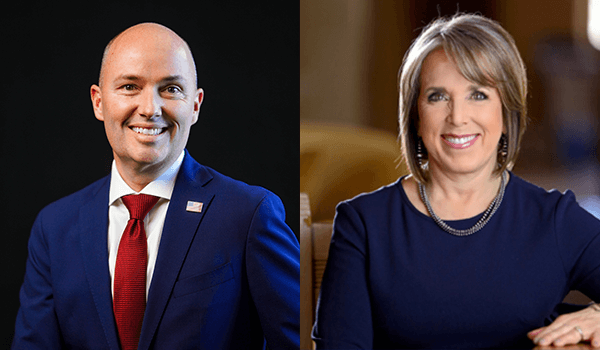‘Prebunking’ false election claims may boost trust in elections

In recent years, democracies worldwide have seen a growing erosion of trust in election outcomes and institutions, driven in part by fears of widespread fraud. As the digital age continues to transform the ways in which people consume information, online election misinformation has expanded at an unprecedented pace. Amplified by highly polarized political climates, this trend poses a significant threat to public confidence in democratic electoral systems.
A new multi-country study published in the American Association for the Advancement of Science’s journal Science Advances, by researchers from the University of Notre Dame, Dartmouth College, the University of Groningen, and the University of Southampton, finds that “prebunking” — providing accurate information before false claims spread — boosts trust in elections more effectively than traditional fact-checking.
The team conducted three large-scale case studies using results from elections in the United States and Brazil — two countries where fraud misinformation has undermined trust in elections.
The studies found that prebunking messages were consistently effective, especially among individuals who were previously misinformed. However, the research also found that adding forewarnings — alerting people they might be misled — can reduce the effectiveness of prebunking.
“This research shows that facts, when delivered plainly and ahead of misinformation, can minimize the effect of inaccurate information,” said Brian Fogarty, associate professor of the practice at the Lucy Family Institute for Data & Society and a co-author of the study. “But, when we warn people that they might be misled, especially in a highly polarized environment, they can become more skeptical of the message itself.”
Fogarty, also a concurrent associate professor of the practice in the Department of Political Science, worked with co-authors John M. Carey and Brendan Nyhan of Dartmouth College, Marília Gehrke of the University of Groningen and Jason Reifler of the University of Southampton to conduct the study.
Across the three case studies — before the U.S. 2022 midterm elections, after the 2022 Brazil presidential election and in a follow-up study to prebunk with and without forewarning in the U.S. — the team compared two commonly used approaches for correcting misinformation. The first approach investigated situational credible sources delivered by political figures to confirm the legitimacy of elections. The second approach, prebunking, was used to provide factual information before exposure to misinformation in the hopes that preemptively encoding information into an individual’s memory may shape how subsequent information is processed.
Using surveys timed around national elections in the U.S. and Brazil, the researchers tested how situationally credible sources and prebunking messages influenced beliefs about elections. Participants were randomly assigned to view the different types of correction approaches and then answered questions about their confidence in elections, perceptions of fraud and factual accuracy. The data from the surveys were then analyzed to assess how these interventions shaped public opinion.
In the analysis of the 2022 U.S. midterms, researchers found that both corrections and prebunking approaches boosted voter confidence — but prebunking had a longer-lasting impact on beliefs about voter fraud, especially among the most misinformed.
Similar effects emerged in Brazil after the contentious 2022 presidential election, where prebunking proved even more effective at instilling election confidence and factual accuracy. “In Brazil, we saw a particularly strong effect from prebunking,” Fogarty said. “The facts were nonpartisan and required no background knowledge about political actors, making prebunking especially promising in fast-moving political environments.”
The results of the follow-up U.S. study revealed that prebunking was significantly more effective when information was delivered without forewarning. In fact, including warnings about misleading information slightly reduced effectiveness, particularly among Republican participants.
The research suggests that prebunking offers several advantages — it is nonpartisan, does not require context about a particular election, and is effective at reaching broad audiences, making it a promising tool for policymakers, platforms and journalists.
Still, Fogarty cautions that additional studies are needed to assess prebunking’s long-term effectiveness, application in different cultural settings and interaction with real-world media environments. “I’m optimistic that even though there is still research to be done, prebunking can be considered as a powerful tool for countering election misinformation — especially when it’s delivered clearly, early and without partisan cues to support informed citizens and resilient democracies,” he said.
“This project exemplifies the Lucy Family Institute’s research ethos of interdisciplinary scholarship that addresses complex societal challenges through domain-informed and data-driven approaches, supporting efforts to build trust and resilience in democratic processes,” said Nitesh Chawla, founding director of the Lucy Family Institute for Data & Society and the Frank M. Freimann Professor of Computer Science and Engineering.
Contact: Jessica Sieff, associate director of media relations, 574-631-3933 or jsieff@nd.edu
Contact: Tracy DeStazio, associate director of media relations, 574-631-9958 or tdestazi@nd.edu
Latest ND NewsWire
- Notre Dame Democracy Initiative hosts bipartisan conversation with Western state governorsTwo Western state governors known to work across the aisle on policy issues such as water, housing and energy will visit the University of Notre Dame for a fireside chat about how Western state pragmatism can serve as a model for the country to overcome polarization.
- In new research, Roy Scranton explores climate change and the limits of human progressIn his most recent book, “Impasse: Climate Change and the Limits of Progress,” Scranton, an associate professor of English, defines the impasse he sees as “not only political and institutional, but cognitive, existential and narrative” and asserts that the only path forward is through embracing what he terms ethical pessimism. “A lot of people confuse pessimism with nihilism, apathy and despair,” Scranton said. “But pessimism is actually about recognizing our limits, letting go of unrealistic goals, finding solidarity in the fact of human suffering and doing what you can now, not in some utopian future.
- Notre Dame MBA launches deferred admission programThe Notre Dame MBA Deferred Admission Program allows candidates with little or no work experience, including college seniors, to secure admission before reaching the recommended three years of work experience to enroll.
- ND experts on the canonization of Carlo AcutisAs the Church awaits the ceremony in St. Peter’s Square, where Pope Leo XIV will formally declare Acutis a saint, University of Notre Dame experts Kathleen Sprows Cummings, Brett Robinson and Timothy O’Malley reflect on his life and his path to sainthood.
- MBA student and alumnus to take part in Fighting Irish flyoverNotre Dame MBA student Maximo Navarro takes flight for the Fighting Irish football season opener.
- Collecting more than trash: Researchers equip local garbage trucks to gather data on urban heat island effectTo help identify — and ultimately mitigate — heat islands in South Bend, a team of University of Notre Dame researchers has partnered with the city to collect data using a novel method: garbage trucks. Ming Hu, the associate dean for research, scholarship and creative work in Notre Dame’s School of Architecture; Jason Carley, an assistant professor of industrial design; and Siavash Ghorbany, a doctoral student in civil and environmental engineering, have designed and deployed sensors on the city’s fleet of garbage trucks that can continuously monitor and record data on temperature and humidity as the trucks complete their normal routes.













